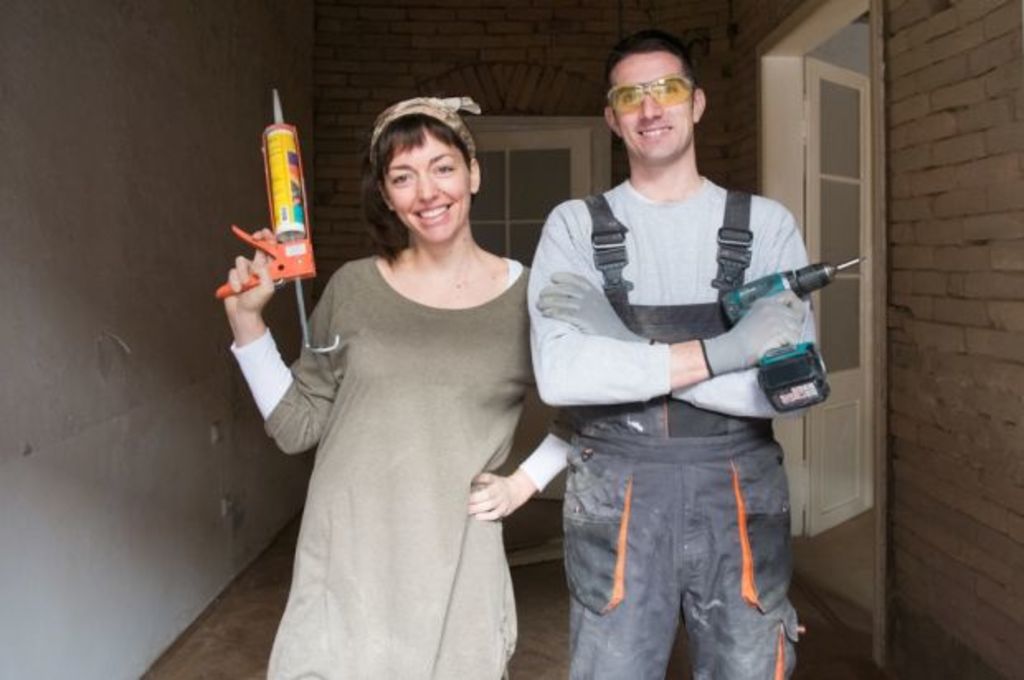What's a 'mud doctor'? Trades you've never heard of, but need for your renovation

It’s a no-brainer that you’ll need builders, cabinetmakers, plumbers and electricians for your renovation. But there’s a range of other tradespeople you might need to call on as the renovation progresses from planning stage to completion.
Here’s your alphabetical guide to the trades you need, but may not have thought of.
Acoustic engineering
Your local council might require an acoustic report, so that they can predict the expected noise impact of your finished renovation or new home. This is most likely if you’re installing an air conditioner or pool pump.
If this is the case, you’ll need to familiarise yourself with an acoustic engineer – even though you probably never knew they existed for residential renovations.
Arborist consulting
If your build is going to affect any of the trees around your home, you can ask a certified arborist to advise the best way to approach the renovation. They can advise on the removal of a tree or how to lower your impact on the surrounding tree roots.
- Related: Get this wrong and you’ll ruin your reno
- Related: The worst job any renovator can attempt
- Related: The renovation Cherie Barber advises against
Asbestos removal
One-third of Australian homes contain asbestos. It’s a material that’s safe when in one piece, but the dust that comes out when it’s disturbed can wreak havoc with your health.
If you’re renovating, you need to check if asbestos is likely to be interfered with. This is most likely if your home was originally built between 1930 and 1983, but because asbestos was only banned at the end of 2003, it’s worth checking before you renovate.
Caulking
It’s often not the tiler or builder who does the final touches on the bathroom, laundry and kitchen these days. For airtight gaps and watertight rooms, a professional caulker with a steady hand is vital to finish off your rooms with perfection.
Energy rating
All renovations and new builds need to have a six-star energy rating. Which, of course, means you’re going to have to call on an energy rating assessor during your designing and planning stages.
Heritage advisory
If you’re planning to renovate a heritage-listed home, you probably know you’re in for a little extra planning than the average renovator.
The best place to start is with your council. They’ll point you in the direction of a heritage advisory service, who will then draw up a heritage impact assessment for you to submit with your plans.
A heritage advisor can also point you in the right direction for specialised heritage trades like tuck-pointing and fretwork.
Lighting specialists
Remember the days when the electrician just put a light into the centre of each room? Those days are long gone.
Now, we’re very aware that the way a room is lit up makes a big difference to its liveability. For this reason, you’re more likely to call in an expert to create a lighting plan that’s customised to your home.
Quantity surveying
“How much will this cost?” – that’s likely be the biggest question at the very start of your renovation.
And there’s one trade who can answer that better than anyone: a quantity surveyor. They’ll pull together a renovation cost plan based on all the materials you’ll need – and you’ll know exactly what to expect (financially, at least) from that point on.
Soil ratings
Long before the building starts, your renovation needs the thumbs up from a geotechnical engineer. This “mud doctor” will test the stability and chemical compositions of your site’s soil, which will inform the builder of the types of footings that need to be used.
Technology consulting
Whether your renovation includes a home theatre, a TV and sound system upgrade, you’re keen to have more Wi-Fi access points, or perhaps security is a big focus, it’s worth calling in a technology expert.
A consultation will help to make sure your renovation takes your technology needs into account, from planning to installation.
Traffic management
Will your renovation impact on the road you live on? If so, you’ll need to consider traffic management in conjunction with your local council.
Waste removal
Not all builders provide a waste removal service. A professional rubbish removalist will take it all away, making sure that each material is disposed of correctly.
Window tinting
You might think of window tinting as something only your car needs, but there are a few reasons it might play a role in your home renovation.
One is privacy: if you’re adding a second storey, for example, you might be required to cover the windows that overlook a neighbour. A frosted window film can do the trick.
More traditional tinting can help to control the amount of sun coming in the windows, making your home more energy efficient, while newer film options can also be printed with customised images to go on a wall, making it an alternative to wallpaper.
Your renovation is an exciting venture – especially when you have all your trades, from the most obvious to the most obscure, prepared ahead of time.
We recommend
We thought you might like
States
Capital Cities
Capital Cities - Rentals
Popular Areas
Allhomes
More







